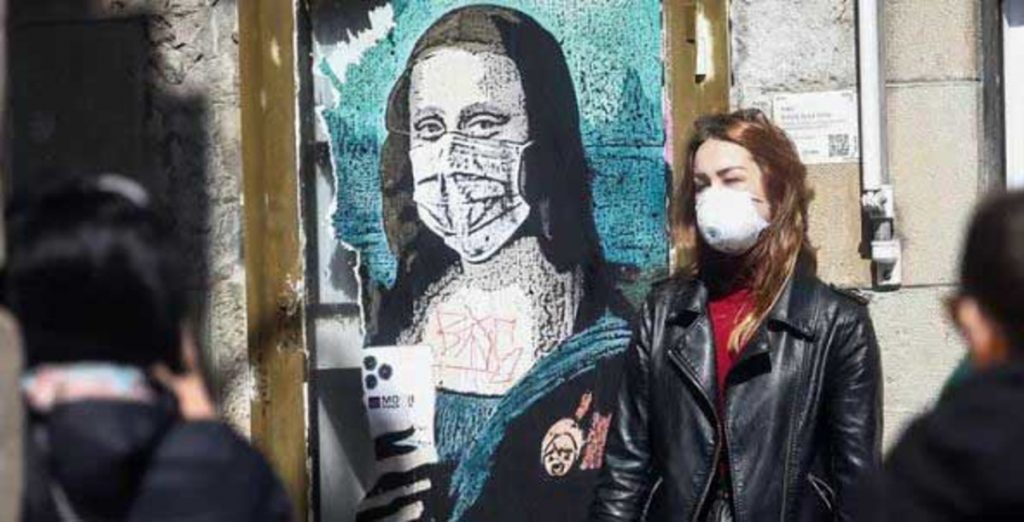What will be the immunity with COVID-19
People who have overcome COVID-19 may not be able to get it again. At least in the short term, medical scientists say. However, it is not yet clear how long the effect of the developed immunity will last. It can last only one season.
Immunity is caused by antibodies that the human body produces. These are proteins in the blood that attack viruses and bacteria upon invasion. Antibodies produced in response to COVID-19 must be contained in the blood of those who have been ill. They signal that the person has recovered and should no longer be in isolation. They are also considered as a medicine for patients with a lack of their own antibodies to successfully fight the virus.
Some scientists now believe that antibodies can prevent the re-infection of humans with COVID-19, but recognize that more research is needed.

“We are not 100% sure of this, since we did not conduct such a study. But if this virus acts like any other that we know about, once you get infected, recover, recover, then you will gain immunity that will protect you from re-infection, ”Anthony Fauci, director of the National Institute of Allergy and Infectious Diseases, quotes NBC News .
“It is reasonable to assume that people will develop some kind of immunity. But to say that he will act all his life is not yet possible. We just don’t know that yet. But I think that immunity will continue until the end of the season, ”said Francis Lund, professor and head of the department of microbiology at the University of Alabama.
What immunity depends on
The question of whether protection will be long-term depends on a number of factors. Firstly, whether the virus is capable of mutations. If it remains stable, then there is a high probability of successful reflection of the attack by antibodies during repeated invasion. Proteins in the blood recognize it and prevent the reproduction in the body.
However, the coronavirus genetic material consists of RNA, not DNA. RNA viruses tend to mutate over time. Another RNA virus – seasonal flu – usually changes from year to year.
“That’s why a new flu vaccine comes up every year. Influenza has always been, you constantly produce antibodies to some parts of the virus, but you need to get antibodies to new fragments, ”explained Tim Shaker, infectious diseases doctor and deputy dean of the University of Minnesota Medical School.
Since this coronavirus is completely new, Shaker emphasized, we are all vulnerable to every part of it.
Another factor affecting re-infection is the quality of the antibodies that the body produces against coronavirus. They are produced when exposed to any infection, but not every antibody has properties that can prevent the cells from being infected again. Scientists have yet to find out whether antibodies to COVID-19 are highly effective.
“In order to neutralize the virus, the antibody must interact with a very specific fragment of it, preventing it from adhering to the cell that it usually infects,” Lund explained.
Even if antibodies are capable of this, the immunity they provide can weaken over time.
“Since this is a new virus, it is difficult to predict what will happen. The immunity period can range from eight months to a year or several years, ”said Joel Baines, a virologist at Louisiana State University.
According to Shaker, this period is called immunological memory and depends on plasma cells that produce antibodies that divide for some time and remain in your blood.
“If you are re-exposed to this pathogen and you have enough cells to produce antibodies, then you are protected from re-infection. But all this may be true for a well-studied infection. We just do not yet know what will happen to this virus, ”he said.
What is already known
However, there are already encouraging signs of the quality of antibodies to coronavirus that our body produces. Trial treatments using serum or antibody-rich plasma taken from recovered patients have shown good results. They were used to treat patients in a severe stage. Thus, the Governor of New York, Andrew Cuomo, has already announced a plan to use the experimental method in his region, the most severely affected by COVID-19 in the United States.
Although preliminary results are optimistic, scientists warn that more research is needed before drawing any conclusions about coronavirus and immunity.
“Viruses exist for a very, very long time, and they are not so stupid. They have long understood what they need to do in order to survive, ”said Lund.










